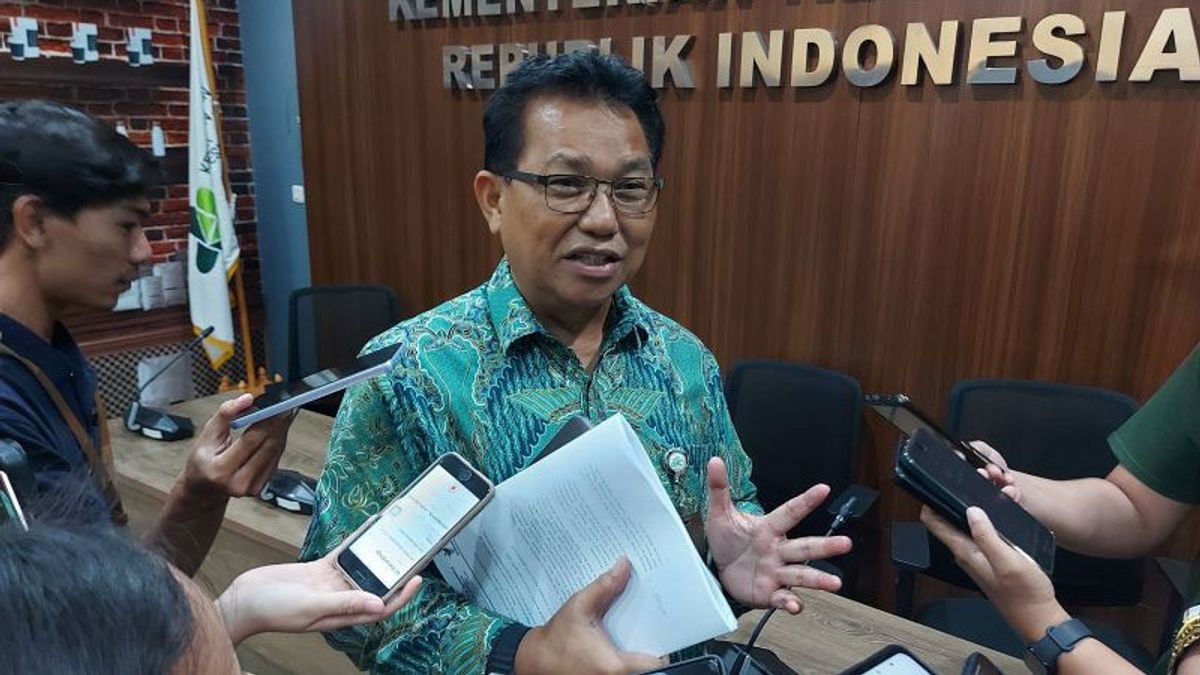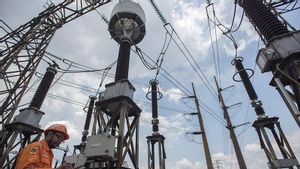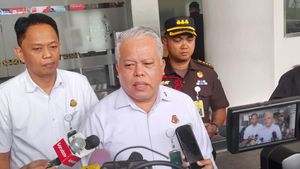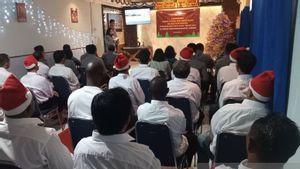JAKARTA - The Ministry of Health (Kemenkes) has clarified the rules for providing health contraceptives for adolescents and school age as stated in the Government that has officially issued Government Regulation (PP) Number 28 of 2024 concerning the Implementation of the Health Law (PP Kesehatan).
Spokesperson for the Ministry of Health, Syahril, emphasized that the provision of contraceptives is not intended for all teenagers, but only for teenagers who are married. The goal is to postpone pregnancy when prospective mothers are not ready due to economic or health problems.
"So, the provision of contraceptives is only given to teenagers who are married to be able to postpone pregnancy until a safe age for pregnancy," said Syahril in his statement, Tuesday, August 6.
In accordance with the provisions in the PP, the main target of providing contraceptives is the fertile age pair and the at-risk fertile age group. Thus, the provision of contraceptives will not be aimed at all teenagers.
"Early marriage will increase the risk of maternal and child mortality. The risk of children being born into stunting is also very high," said Syahril.
Syahril said that more technical regulations would be outlined in the regulation of the Minister of Health (permenkes) as a derivative regulation of PP Kesehatan. He asked the public to wait for the public to issue the health media so that they could interpret it with the correct perception.
"The derivative rules will also clarify the provision of education about family planning for school-age children and adolescents who will be adjusted to the stages of development and age of children," said Syahril.
President Jokowi through Government Regulation (PP) regulates the provision of contraceptives for school-age children and adolescents. PP Number 28 of 2024 concerning Implementation Regulations of Law Number 17 of 2023 concerning Health that has just been issued by the government includes several health programs including the reproductive system.
However, the PP became a polemic because, among other things, it regulates the provision of contraceptives for school children and adolescents. Article 103 paragraph (1) of the PP states that the health efforts of the school and youth age reproductive system are at least in the form of providing communication, information, and education, as well as reproductive health services. The polemic is seen in Paragraph (4) of the e' item, namely the provision of contraceptives.
Contraceptives can indeed protect themselves from various risks due to sexual intercourse. But this regulation can be interpreted as approval of relationships outside of marriage or even free sex.
Regarding the use of condoms or other contraceptives at school and youth, netizens have become the talk of netizens. The responses are varied.
The public is mostly against this regulation, because it is not in accordance with religious norms that prohibit sex outside of marriage. But there are also those who think that the provision of contraceptives has a positive goal, namely to avoid unwanted pregnancies and prevent sexually ills.
Those who are against the provision of contraceptives for school and youth age represented by Netty Prasetiyani, a member of the House of Representatives (DPR) at Commission XI in charge of health and population.
SEE ALSO:
Netty said that PP, which was signed on July 27, could lead to the assumption that sexual intercourse is allowed for school-age children and adolescents.
"It's strange that school-age children and teenagers want to be equipped with contraceptives. Is it meant to facilitate sexual intercourse outside of marriage?" said Netty.
The English, Chinese, Japanese, Arabic, and French versions are automatically generated by the AI. So there may still be inaccuracies in translating, please always see Indonesian as our main language. (system supported by DigitalSiber.id)
















